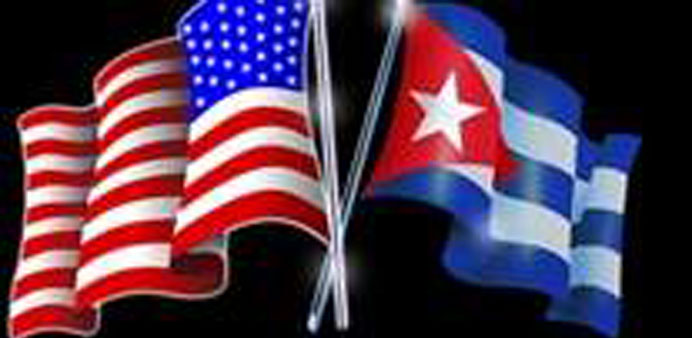AFP/Havana
Cuba said it will hold talks on Tuesday with the US on human rights, one of the most delicate issues pending in their historic rapprochement, insisting that both sides’ records should be scrutinised.
Washington and Havana have held three rounds of talks since they announced on December 17 that they would resume relations after more than five decades of enmity, but so far they have not broached the sensitive topic of human rights.
The deputy director of the Cuban foreign ministry, Pedro Luis Pedroso Cuesta, said the two sides would meet in Washington for a “bilateral dialogue on human rights.”
“This demonstrates Cuba’s readiness to address any issue despite our differences,” he told journalists.
The communist island nation had proposed the meeting, he said.
Cuba, he added, “hopes this dialogue will unfold in a constructive tone on the basis of reciprocity, without conditions or discriminatory treatment and in full respect of sovereignty, independence and non-interference in the countries’ internal affairs.”
The talks will include “the concerns we have about human rights in the US.”
Washington has called for sweeping rights reforms from Havana. But Cuba counters that the US’ own human rights record is lacking, pointing especially to the prison at Guantanamo Bay set up to hold terror suspects after the 9/11 attacks.
After a first round of talks in January, when the US delegation voiced concern over the lack of freedom of expression and assembly in Cuba, the Cuban delegation responded that the US bore the stains of police brutality and rampant inequality, as well as the torture and indefinite detention of Guantanamo inmates.
President Barack Obama is under pressure to make a breakthrough with Havana on human rights, after coming under fire from Republican lawmakers and many in the Cuban exile community for moving to restore ties without extracting any concessions on increased political freedoms.
Pedroso said Havana acknowledged it had work to do on human rights.
Cuban leaders “recognise that we still have important targets to reach, like all countries,” he said.
“We work under the assumption that there are different political models and different models of democracy. Cuba does not believe - this is nothing new - that there’s one sole model of democracy.”
The talks have so far focused on reestablishing diplomatic relations and reopening embassies, which Obama is keen to see happen before the Summit of the Americas in Panama on April 10 and 11.
Cuba has insisted it first be removed from the US blacklist of state sponsors of terror.
The two sides also have to iron out a number of other issues, such as compensation for American property nationalised after the Cuban Revolution, freedom of movement for diplomats and the embargo the US has imposed on Cuba since 1962, which Obama would need the blessing of the Republican-controlled Congress to lift.

